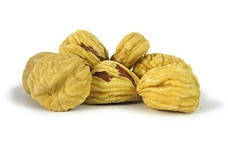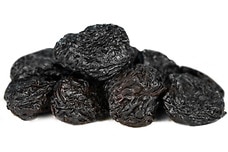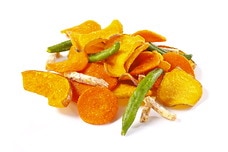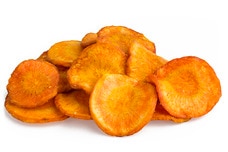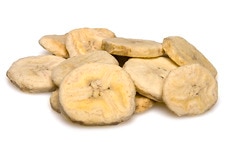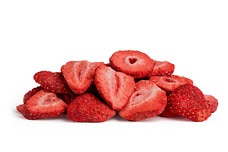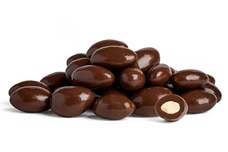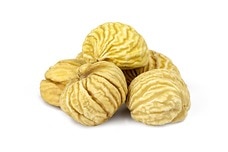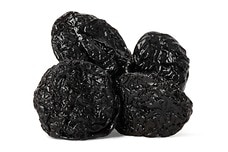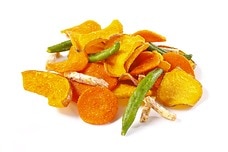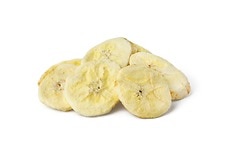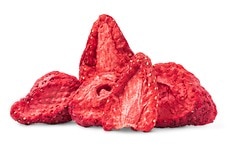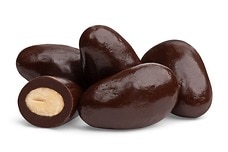Alkaline Diet
The body depends on the activity of thousands of types of enzymes and proteins, so it's no surprise that your body must be kept in proper condition to ensure these processes run smoothly. One environmental parameter that effects body functioning is pH, or the acidity of the body.
The theory behind the alkaline diet is that modern American diet causes the body to become too acidic, interrupting normal physiological processes and contributing to disease. The diet principle is based on the notion that the adoption of an alkaline diet lessens the body’s load to balance pH levels in the body.
Supporters of the alkaline diet promote its use to treat conditions that affect urine pH, such as urinary tract infections or kidney stones (Vangsness, 2013). Although the medical community awaits more scientific evidence to support the benefits of pH balance and disease.
Alkaline Rich Snacks
Difference Between Acidic and Alkaline Foods
The pH scale ranges from 0 to 14. A pH of 0 is completely acidic, while a pH of 14 is completely alkaline, or basic. A neutral pH is a 7. The acidity or alkalinity of your body differs by body part. For example, the blood is slightly alkaline, ranging from a pH of 7.35 to 7.45 (MedicineNet, 2012). In contrast, the stomach has a very acidic pH that helps it effectively digest food. When your body metabolizes food molecules, the end products may be slightly alkaline or slightly acidic.
It is important to note that the acidity of a food before it is consumed is not the same as the acidity that results from metabolism of that food. For example, citrus fruits such as lemons and oranges tend to be acidic. However, when they are broken down by the body, they have an alkalizing effect. Thus, they are considered acceptable foods for the purpose of the alkaline diet.
Which Foods are Acidic versus Alkaline
In general, fruits and vegetables tend to have an alkalizing effect in the body. In contrast, meats, cheeses, and wheat products produce acid. Following are a list of common alkaline foods:
- Cruciferous vegetables (e.g., Brussels sprouts, cabbage)
- Leafy green vegetables
- Green beans
- Onions
- Parsnips
- Pumpkin
- Bananas
- Avocado
- Cherries
- Grapes
- Strawberries
- Citrus fruits (e.g., lemons, limes, oranges)
- Watermelon
- Almonds
- Chestnuts
- Tofu
- Tempeh
Note that this list includes many fresh, whole foods. Foods that tend to have an acidifying effect in the body include:
- Lentils
- Winter squash
- Blueberries
- Plums
- Cranberries
- Wheat
- Rye
- Quinoa
- Bread
- Pasta
- Beans (e.g., kidney beans, black beans, pinto beans)
- Cheese
- Butter
- Peanut butter
- Chicken
- Beef
- Oats
- Salmon
- Olive oil
- Canola oil
- Alcoholic beverages
- Coffee
- Soda
Foods that are highly processed and which contain refined sugar are much more likely to have an acidifying effect on the body.
Core Concepts of the Alkaline Diet
The central concept behind the alkaline diet is simple: eat as many alkaline foods as possible while minimizing consumption of acidic foods. In practice, this means that people who follow an alkaline diet are mostly vegetarian. They consume a lot of fresh fruits and vegetables, as well as tofu, nuts, seeds, and certain legumes to boost protein intake.
The alkaline diet requires a significant commitment and is a large change from the typical American diet; wheat products, dairy products, and processed foods are off limits. Most alkaline diets also avoid alcohol and caffeine, too. Herbal teas are alkaline and thus acceptable to drink.
Research Support for the Alkaline Diet
Proponents of the alkaline diet claim that when a person eats acid-promoting foods, the body must leach alkaline-rich minerals from the bones to balance the pH of the blood (Bruno, 2013). This means that calcium, magnesium, phosphorus, and other alkaline minerals may be pulled from bone tissue, compromising bone density. Additionally a lower (more acidic) pH may increase inflammatory markers that are associated with disease.
Research evidence supporting the use of the alkaline diet is limited. In a study of more than 2,600 women, eating more alkaline foods was associated with modestly higher skeletal muscle mass (Welch et al., 2013). However, this effect was correlational since the study was not designed as an alkaline diet intervention, such that there may have been other factors that influenced these results.
Some evidence does suggest that an alkaline diet may be associated with lower overall mortality from chronic disease (Schwalfenberg et al., 2012). However, the number of studies is relatively small, meaning that they must be replicated before this diet may be advocated.
Concerns and Limitations of the Alkaline Diet
Some scientists have expressed doubt that the alkaline diet is effective (Hanley & Whiting, 2013). Eating fruits and vegetables is associated with decreased risk of chronic disease, but not necessarily because of these foods’ effect on the body’s pH. Additionally, an alkaline diet may make it difficult to get enough protein. This is particularly worrisome for older adults, who need protein to maintain bone health (Hanley & Whiting, 2013). Despite these concerns, most Americans would benefit from eating more fruits, vegetables, nuts, and seeds, regardless of their impact on pH.
Alkaline Recipes
We’ve supplied a list of recipes that utilize almost entirely alkaline ingredients below for your convenience. These recipes also provide a healthful blend of ingredients that are great for any complete diet!
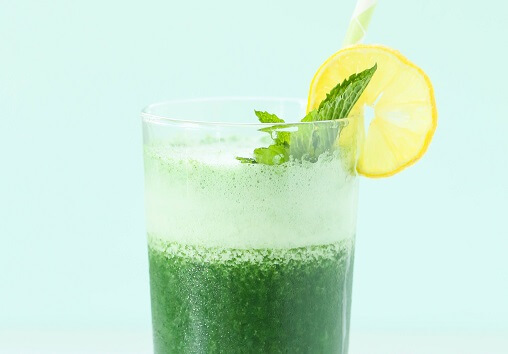
Spirulina Smoothie Recipe
A superb beverage to recover after a workout or to enjoy as a refreshing treat- this blend of superfoods supplies a superb serving of essential nutrients in a delicious and alkaline package.
Ingredients: Spirulina, banana, fresh spinach, apple juice, crushed ice, lemon juice.
Total Time: 2 minutes
| Yield: 2 smoothies
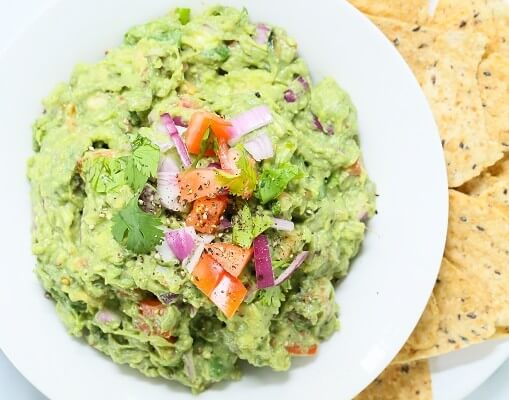
Chlorella Guacamole Recipe
A staple of an alkaline diet, avocados are a great source of essential fatty acids that taste divine. This delicious dip also includes a healthful helping of chlorella powder, which provides many essential vitamins and minerals and is a complete protein.
Ingredients: Avocados, tomato, onion, lime juice, fresh cilantro, garlic, jalapeno pepper, chlorella powder, salt, crushed pepper.
Total Time: 15 minutes
| Yield: 3 cups (10 servings)
Alkaline Snacks
In any diet, snacking is an essential means of getting the energy you need to get through the day and can help promote healthier eating habits at meal times. These snacks were selected for their overwhelmingly alkaline composition to support your dietary decisions.
Healthy Eating
- Healthy Snacks
- Healthy Highlights
- 5 Uses for Cacao Powder
- 5 Ways to Eat Farro
- 6 Best Gluten-Free Foods
- Alcohol and the Body
- Almond Flour Recipes
- Anti-Aging Superfoods
- Beat the Afternoon Slump
- Benefits of a Plant-Based Diet
- Benefits of Baobab
- Benefits of Cashews
- Benefits of Coconut Oil for Hair
- Benefits of Coconuts
- Benefits of Dates
- Benefits of Fenugreek
- Benefits of Garcinia Cambogia
- Benefits of Goji Berries
- Benefits of Kale Chips
- Benefits of Monk Fruit Sweetener
- Benefits of Peanuts
- Benefits of Pecans
- Benefits of Pistachios
- Benefits of Pumpkin Seeds
- Benefits of Spelt Flour
- Benefits of Steel Cut Oats
- Benefits of Sunflower Seeds
- Benefits of Tiger Nuts
- Benefits of Turmeric
- Benefits of Walnuts
- Benefits of Wheatgrass
- Best Food Fads
- Cacao vs Cocoa
- Caffeine-Free Energy Foods
- Chocolate That's Good for You
- Diet vs. Exercise
- Fat Burning Foods
- Food Myths Debunked
- Foods for Bone Density
- Foods for Colon Health
- Foods for Healthy Hair
- Foods for Healthy Skin
- Foods to Help Sleep
- Foods to Reduce Stress
- Green Tea Benefits
- Healthy Baking Flours
- Heart Healthy Habits
- High Protein Health Risks
- How to Boost Your Metabolism
- How to Lose Weight While Aging
- How to Throw a Vegan BBQ
- Kaniwa vs Quinoa
- Little Health Foods
- Low-Carb: Fad or Friend?
- Making Healthier Desserts
- Mediterranean Diet Meal Plan
- Natural Beauty Products
- Nuts for Weight Loss
- Preparing Vegan Meals
- Preventing Muscle Degeneration
- Rare Superfoods
- Reduce Sugar Intake
- Save Time By Going Vegan
- Smarter Snack Swaps
- Smoothie Ingredients
- Soy Protein vs Whey Protein
- Starting a Plant-Based Diet
- Steel Cut vs Rolled Oats
- Sugar Substitutes
- Vegan Proteins
- Vegan Substitutions for Fall Recipes
- Why Go Vegan
- Healthy Meals
- Healthy Recipes
- Sports Nutrition
- Vitamins, Minerals & Nutrients

